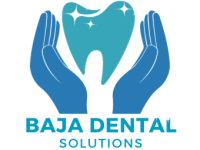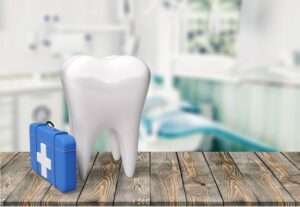Table of Contents

Bruxism, commonly known as teeth grinding or jaw clenching, is a prevalent dental issue that affects individuals of all ages. The impact of bruxism on oral health cannot be understated, as it can lead to a range of problems from tooth pain to more severe complications. In this comprehensive guide, we’ll delve into the intricacies of bruxism, its causes, and symptoms, and explore preventive measures such as night guards. Let’s unravel the mysteries behind this dental concern and its effects on your overall oral well-being.
Understanding Bruxism
Bruxism is characterized by the habitual clenching or grinding of teeth, often occurring during sleep. This subconscious activity can result in various dental issues, ranging from tooth sensitivity to severe jaw pain. It’s essential to recognize the signs and symptoms of bruxism early on to address the problem and prevent further complications.
Causes of Bruxism
- Stress and Anxiety: Bruxism is often linked to heightened stress levels and anxiety.
- Malocclusion: Misalignment of teeth, also known as malocclusion, can contribute to bruxism.
- Sleep Disorders: Individuals with sleep disorders such as sleep apnea may be more prone to teeth grinding during the night.
- Lifestyle Factors: Certain lifestyle factors, like excessive alcohol consumption or smoking, can exacerbate bruxism.
Impact of Bruxism on Oral Health
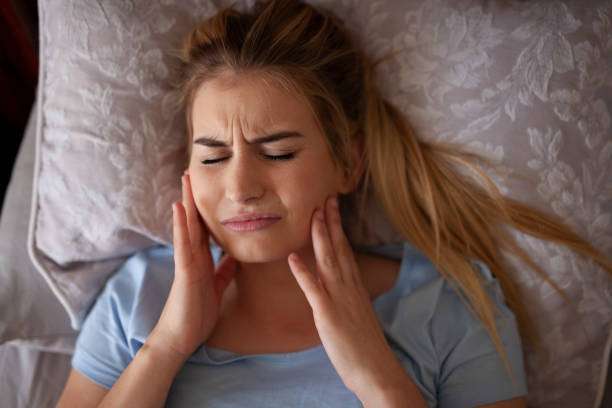
Bruxism can lead to persistent tooth pain, especially if left untreated. The continuous pressure on teeth during grinding can cause enamel wear and microfractures, resulting in heightened sensitivity and discomfort.
Tooth Wear and Tear
Frequent grinding can erode tooth enamel, leading to heightened sensitivity, fractures, and the necessity for extensive dental procedures.
Muscle Discomfort and Headaches
The continuous clenching action can strain jaw muscles, causing discomfort and persistent headaches.
TMJ Disorders
Bruxism often contributes to Temporomandibular Joint (TMJ) disorders, manifesting as pain, clicking noises, and restricted jaw movement.
Prevention Strategies Against Bruxism
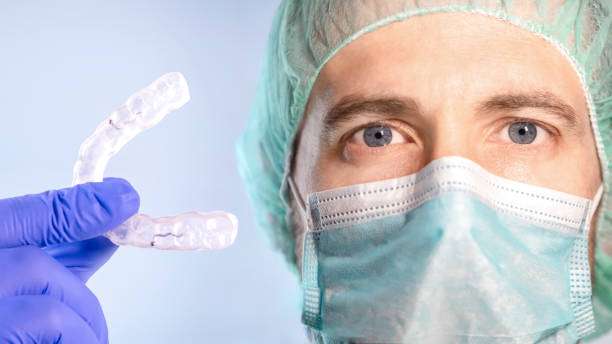
Effective prevention of bruxism involves a combination of lifestyle changes, stress management, and professional intervention.
Preventive Measure | Description |
Night Guards | Worn during sleep, night guards create a protective barrier, preventing direct tooth contact. |
Stress Reduction Techniques | Incorporate stress-relief practices, such as meditation or yoga, to mitigate triggers for bruxism. |
Regular Dental Check-ups | Schedule routine check-ups at clinics like /Services/Dental Care Clinic for early detection and intervention. |
Natural Dental Care | Explore natural remedies, like herbal teas, under the guidance of professionals at /Services/Dental Solutions Tijuana. |
Customized Treatment Plans | Seek personalized treatment plans from experts like those at /Services/You Smile Dental for holistic care. |
Grinding Teeth Pain Relief
To alleviate pain caused by teeth grinding, various pain relief measures can be employed. These may include over-the-counter pain relievers, application of ice packs to reduce inflammation, and, most importantly, addressing the root cause of bruxism.
Prevent Jaw Clenching
Preventing jaw clenching involves a multi-faceted approach. Stress management techniques, relaxation exercises, and night guards can be instrumental in mitigating the impact of jaw clenching on oral health.
Prevent Teeth Clenching
Effective prevention strategies encompass both behavioral and therapeutic interventions. Behavioral modifications may include avoiding chewing gum and practicing jaw-relaxation exercises. On the therapeutic side, night guards are often recommended.
Bruxism Pain Relief
Bruxism pain relief can be achieved through a combination of lifestyle adjustments and dental interventions. In addition to night guards, stress reduction techniques, such as meditation and yoga, can contribute to pain alleviation.
Night Guard for Jaw Pain
Night guards, also known as dental splints or occlusal guards, are crucial in managing bruxism-related jaw pain. These custom-fitted devices create a protective barrier between the upper and lower teeth, preventing direct contact during grinding and reducing the impact on the jaw joint
Natural Dental Care for Bruxism
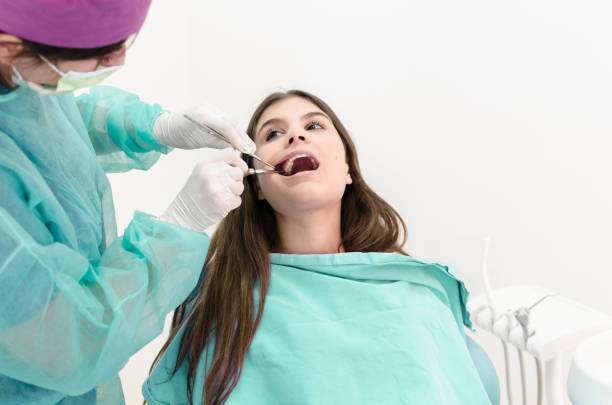
Natural Dental Care
Incorporating natural dental care practices into your routine can complement traditional treatments for bruxism. This may include:
- Herbal Remedies: Chamomile tea or valerian root supplements may promote relaxation, potentially reducing stress-related bruxism.
- Magnesium Supplementation: Magnesium has muscle-relaxing properties and may contribute to minimizing jaw clenching.
Healthy Dental Habits
Maintaining healthy dental habits is crucial for individuals dealing with bruxism. Regular dental check-ups, proper oral hygiene practices, and adherence to dentist-recommended treatments contribute to overall oral well-being.
The Dental Care Center and Bruxism Solutions
At Baja Dental Solutions in Tijuana Mexico, we specialize in high-quality dental care, including effective solutions for bruxism. Our experienced dentists utilize advanced techniques and technologies to diagnose and treat bruxism, ensuring optimal oral health for our patients.
Advantages of Addressing Bruxism
- Preservation of Tooth Structure: Timely intervention helps preserve the integrity of teeth, preventing excessive wear and tear.
- Pain Relief: Effectively managing bruxism, with solutions like night guards, provides relief from jaw pain and associated discomfort.
- Enhanced Sleep Quality: By addressing bruxism, individuals can experience improved sleep quality and overall well-being.
- Prevention of Further Complications: Managing bruxism early prevents complications such as cracked teeth, which could lead to more extensive dental issues.
- Tailored Treatment Plans: Dental professionals, like those at Dental Care Center, offer personalized treatment plans addressing the unique needs of each individual.
Disadvantages of Ignoring Bruxism
- Enamel Erosion: Untreated bruxism can result in enamel erosion, making teeth susceptible to sensitivity and decay.
- Chronic Pain: Persistent clenching and grinding can lead to chronic jaw pain and discomfort.
- Sleep Disturbances: Bruxism can disrupt sleep patterns, impacting overall health and daily functioning.
- Compromised Aesthetics: Cosmetic concerns, such as cracked or worn-down teeth, may arise if bruxism is left unmanaged.
- Increased Treatment Complexity: Ignoring bruxism may lead to more complex and costly dental treatments down the line.
FAQs about Bruxism
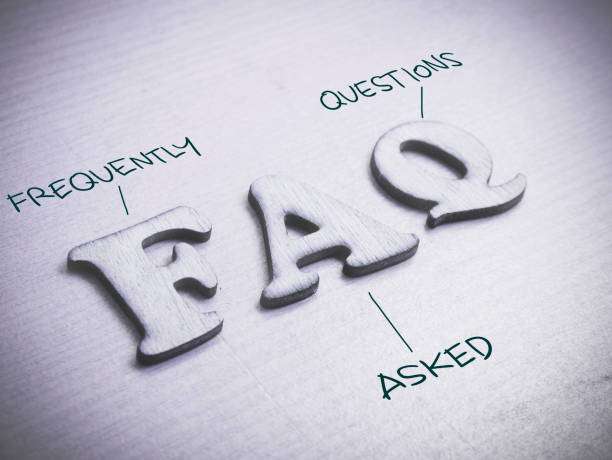
Common signs of bruxism include jaw pain, headaches, tooth sensitivity, and worn-down tooth surfaces.
While there may be a genetic predisposition to bruxism, environmental factors such as stress play a significant role.
Practicing mindfulness, avoiding excessive gum chewing, and incorporating stress-reduction techniques can help prevent daytime teeth clenching.
While over-the-counter night guards may offer some protection, custom-fitted night guards prescribed by a dentist are more effective in addressing individual needs.
Yes, untreated bruxism can lead to complications such as cracked teeth, TMJ disorders, and even tooth loss.
Early intervention and appropriate dental care can often reverse tooth sensitivity caused by bruxism.
Reducing stress, limiting caffeine and alcohol intake, and maintaining a regular sleep schedule can positively impact bruxism.
Regular dental check-ups every six months are recommended for individuals with bruxism to monitor oral health and adjust treatment plans as needed.
Yes, children can experience bruxism, which is often attributed to factors like teething or misalignment of baby teeth.
Biofeedback, cognitive-behavioral therapy, and certain medications may be explored as alternative treatments for bruxism in consultation with a healthcare professional.
Conclusion
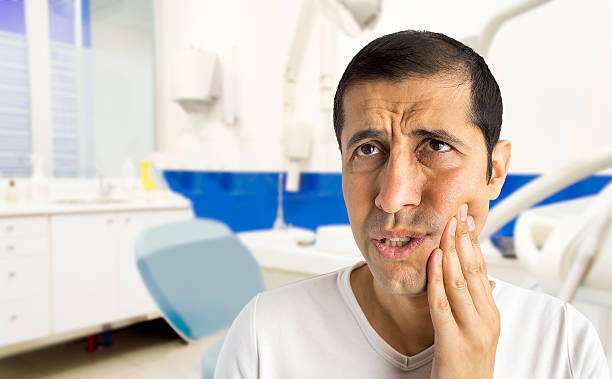
In conclusion, the benefits of regular dental cleanings are multifaceted, encompassing both oral health and aesthetic enhancements. Embracing this preventive measure not only safeguards against potential issues but also contributes to overall well-being. As you embark on this journey towards a healthier smile, remember to complement professional cleanings with diligent daily oral care practices.
Considerations and Candidacy

Considerations for bruxism management include:
- Individualized Treatment Plans: Tailored approaches based on the severity of bruxism and individual needs.
- Lifestyle Modifications: Incorporating stress-reduction techniques and healthy dental habits.
- Regular Monitoring: Continuous evaluation and adjustments to treatment plans as needed.
Candidacy for bruxism management is open to individuals of all ages experiencing symptoms associated with teeth grinding or jaw clenching. Seeking professional dental care is crucial for accurate diagnosis and effective intervention.
Visit our website:
- Baja Dental Solutions at Tijuana Mexico – Trust the experts at Baja Dental Solutions for affordable high-quality dental care.
Note: This comprehensive guide is intended for informational purposes only. Individuals experiencing symptoms of bruxism should consult with a qualified dental professional for
